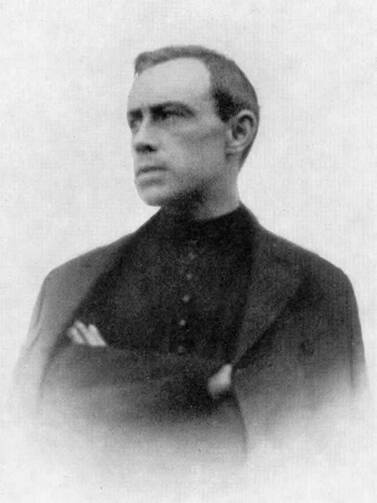Pope Francis’s first encyclical Lumen Fidei concluded that faith is ultimate grounded in love’s knowledge of God in Christ. Faith belongs to the order of interpersonal knowledge because God is personal. “It is love,” I wrote in my initial commentary, “that opens the eyes of the mind.” “Faith’s understanding is born,” according to the encyclical, “when we receive the immense love of God which transforms us inwardly and enables us to see reality with new eyes” (no. 26). I concluded, “God, ”the encyclical confesses,“is a subject who makes himself known and perceived in an interpersonal relationship” (no. 36).
For Catholic theologians and philosophers of my generation the proposition that that the mode of knowledge proper to faith is personal knowledge is basic. In philosophical studies, after wading through the history of the epistemological question of the universals (How human ideas grasp the real), we found the crowning book of the course to be Carlos Cirne-Lima’s Personal Faith (Herder, 1965). The Brazilian philosopher made the case that the closest experience to the knowledge of faith humans enjoyed was interpersonal knowledge of a loved one and that faith’s knowledge of God is personal knowledge.
Around the same time, the Second Vatican Council was making a similar case in the Dogmatic Constitution on Revelation, Dei Verbum, that faith is faith in the person of Christ whom we love. The Council declared, “Jesus Christ, therefore, the Word made flesh, was sent as "a man to men." He "speaks the words of God" (John 3;34), and completes the work of salvation which His Father gave Him to do (see John 5:36; John 17:4). To see Jesus is to see His Father (John 14:9)” (DV, no. 4). The Christocentric presentation of faith found in Vatican II had been championed by several theologians who served as experts or periti at the council, especially Henri DeLubac, and by several others whose work was coming to fruition about that time. Behind them lay the work of the early 20th century Jesuit theologian, Pierre Rousselot (1878-1915) whose promising career was cut short by his untimely death in the First World War.
Rousselot has been called “the theoretician of love.” While his most famous book is titled The Intellectualism of Saint Thomas, the underlying theme in all his work, including the only somewhat less famous Toward a History of Love in the Middle Ages, is love. At a dangerous time for cutting edge theologians, the years of the Modernist Crisis, Rousselot dared to attempt to resolve the centuries-old debate between truth and love. While Plato gave us both The Republic, an assent by knowledge to Truth itself, and The Symposium, an assent by love to the Good, the Medievals debated which approach was superior to the other.
Despite the scholastic axiom Bonitas, veritas et pulchritudo convertuntur (Goodness, Truth and Beauty are interchangeable), the Medievals somehow assumed one had to choose among them for the most important transcendental. Perhaps because of their belief in the reasonableness of faith and the structure of Catholicism as a dogmatic religion, the Dominicans and much of the later Catholic tradition acted as if that truth trumped love. So, too, did heresy-hunting, post-Vatican I Catholicism. Nonetheless Rousselot revived the ancient debate and attempted to resolve it by arguing that there was a dimension of love in understanding and of truth in love.
Rousselot argued that our ideas can communicate the truth because we are already in touch with the real. Love, in other words, leads the mind, because love has a prior grasp on the real that is a desire for understanding. In a pair of articles in 1910 under the title “The Eyes of Faith” in Recherches des Sciences Religieuses, Rousselot argued that the individual affirmations of faith are rooted in our real prior unity with God in Christ. We affirm dogmatic propositions as true because we already enjoy a relationship with God in Christ. The unity of truths is Christ himself.
If you were puzzled, as I was, at how Pope Francis could move from Benedict’s truths of the faith to the truth revealed by love in the latest encyclical, it was the pioneering work of Pierre Rousselot, with the mediation of his disciple Henri De Lubac, that made it possible. Rousselot took the first steps that moved theology from the propositions of faith to faith as the knowledge of love. (See B. Pottier, “Les Yeux de la Foi après Vatican II: I. Pierre Rousselot” [Bibliographical information missing].) He was not the only one to make such a move. One thinks of Newman and Blondel to name just two, who attempted to retrieve the unity between thought and life for the sake of faith. But Rousselot was the first modern theologian to articulate the relationship underlying the believer’s faith in God as one of love.
Drew Christiansen, S. J., a former editor of America, is a visiting scholar for calendar year 2013 at Boston College.








